Fleurs du Mal Magazine


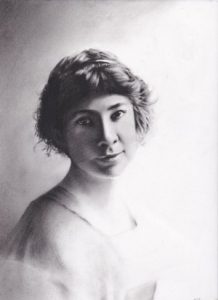
Evening: New York
Blue dust of evening over my city,
Over the ocean of roofs and the tall towers
Where the window-lights, myriads and myriads,
Bloom from the walls like climbing flowers.
Sara Teasdale
(1884-1933)
Evening: New York
from: Flame and Shadow
• fleursdumal.nl magazine
More in: #Editors Choice Archiv, Archive S-T, Archive S-T, Teasdale, Sara

ontrecht
uitgescheurde
horizon
hangt
scheef
boven
bloeddoorlopen
bloemen
roodzon
zonloos
doodzon
zonlood
dwingt
ons
achteruit
onder
wortels door
terug
tot
koude zee
klauw
gras
huilt grijs
rauwe hemel
blues
freda kamphuis
ontrecht
# https://fredaxblog.blogspot.com
• fleursdumal.nl magazine
More in: Archive K-L, Archive K-L, Freda Kamphuis, Kamphuis, Freda
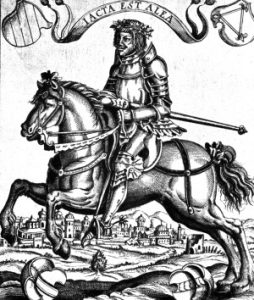
Ein Klag über den
Lutherischen Brand zu Mentz
Ists nun, ach Gott, do kommen zu,
Das, so hast uns gelehret du,
Das auch nit sträflich, sonder wahr,
Den Leuten niemand sagen gdar?
Soll nun dein göttlich Wort zergahn?
Und nehmen alle Menschen an,
Was hat gesetzt ein sterblich Mann?
Ach Gott, soll Wahrheit haben End,
Dein heilig Stiftung werden ztrennt,
Die du doch gesetzt auf festen Grund,
Gelernet hast mit eignem Mund
Und wolltest, daß die blieben stet.
Nimm wahr, Gott Herr, dein Wort zergeht.
Hie brennt des frummen Luthers Gschrift,
Drumb, daß sie dein Gesetz betrifft,
Und daß es ist die Wahrheit bloß,
Wie die aus deinem Mund erschoß.
Hie brennen, Herr, viel guter Wort,
Hie wird dein göttlich Lehr ermordt,
Hie tut man G[e]walt der Predig dein,
Hie gibt man alles Lasters Schein,
Hie wird deim Gsetz entgegen gtan.
Hie heißt man loben jedermann,
Das doch nie billig wart, noch recht,
Hie wird Unbillicheit vorfecht,
Hie wird der päpstlich Stand geehrt
Und undertruckt, was du gelehrt,
Hie lehrt man, Rauben sei kein Sünd,
Hie lobt man böse List und Fünd,
Hie kriegt man wider Ehrberkeit,
Hie gilt nit mehr, was du hast gseit,
Hie wird dein Evangelium voracht,
Hie übt der Papst ein unvorschamten Pracht,
Hie wird zu Recht Unrecht gemacht,
Hie ist wahr Geistlicheit vorlacht,
Hie geht vor Billicheit Gewalt,
Hie hat Unschuld kein Aufenthalt,
Hie man bekümmt all Ding umbs Geld,
Hie wird all Redlicheit zerfällt,
Und ist bedort die ganze Welt.
Hie gibt man Ablaß und Genad,
Doch keinem, der nit Pfennig hat,
Hie wird gelogen, hie gedicht,
Ein Sünd vorgeben, ee sie gschicht.
Darumb der Schand trägt niemand Scham.
Hie wird vorschworn dein heilger Nam,
Und doch gehalten nit ein Wort,
Das Recht gebraucht an keinem Ort,
Hie wird verkauft der Himmel dein,
Geurteilt zu der Helle Pein
Ein jeder, der hinwider sagt,
Hie ist, wer Wahrheit pflegt, vorjagt,
Hie wird teutsche Nation beraubt,
Umbs Geld viel böser Ding erlaubt,
Hie bdenkt man nit der Seelen Heil,
Hie bistu, Herrgott, selber feil,
Und die dein Schaf befolhen han,
Allein die Nutzung sehen an.
Vorhüten niemand denkt dein Herd.
Was du gesagt, ist ganz vorkehrt,
Und ist ein Leo worden Hirt.
Derselb dein Schäflein schabt und schirt
Und würgt sie nach dem Willen sein,
Gibt Ablaß aus, nimmt Pfennig ein
Mit seiner Gesellschaft, die er hat,
Die geben diesen Dingen Rat,
Viel Schreiber, und Kopisten viel,
Die machen, was ein ider will,
Und schreibents dann der Kirchen zu,
Als hättest das vorwilligt du
Und sei zu Rom die Kirch allein.
Ach Gott, nun mach dich wieder gmein,
Als hast von Anbeginn getan,
Laß nit die Bösen Herrschung han,
Laß undertrucken nit dein Lehr.
Ach Herr, den Sinn des Papsts bekehr,
Daß er laß von der Tyrannei,
Und steh dem Recht und Wahrheit bei.
Schaff, daß sein Mut werd abgewendt
Von Ehren, die bald haben End,
Und von dem Reichtumb dieser Welt,
Das wird in kurzer Weil zerfällt,
Und denkt allein auf geistlich Sach,
Do du ihn auch hießt stellen nach,
So wird dein Wahrheit haben statt,
Und diesen Sachen geben Rat.
Dann deiner Lehr ist nit gemäß,
Daß jemer hab der Welt Besäß,
Und sich darneben underwind
Der Geistlicheit, und so geschwind
Herrsch über dein Gesalbten Schar.
Ach, Herrgott, nimm der Sachen wahr,
Daß werd der Glaub nit gar zertrennt,
Genommen ab dein Testament.
Sich, wie man deinen Schäfer trägt,
Mit Seiden, Purpur angelegt,
Wie er so weiblich ist geziert,
Wie man ihm schmeichlet und hofiert.
Sich, wie er Wollust treibt und Pracht,
Dadurch du werden magst veracht
Bein Heiden und ins Türkenland,
Dann sölichs ist ihn wohlbekannt,
Und wissen dich zu schelten nit
ann durch des Papsts verkehrten Sitt.
Hierumb ihm gib ein andern Sinn,
Daß werd gezogen Bosheit hin,
Und sei ein besser Regiment.
Jedoch wird Luther jetzt geschändt,
Sein Gschrift und gute Lehr vorbrennt,
Das sei dir, werder Christ geklagt,
Er ist nie gefordert, nie betagt,
Wiewohl er sich erbeut zu Recht.
Man tut Gewalt dem Gottesknecht,
Umb daß er Wahrheit gpredigt hat.
Ach, Herrgott, gib uns Hülf und Rat.
Es ist gewütet je genug,
Du sichst ihrn Glimpf und auch ihr Fug.
Dich aber, liebster Bruder mein,
Durch solich Macht vorgwaltigt sein,
Bin deinethalben ich beschwert,
Doch hoff ich, es werd widerkehrt,
Und werd gerochen dein Unschuld.
Drumb, Diener Gottes, hab Geduld.
Möcht ich dir aber Beistand tun,
Und raten diesen Sachen nun,
So wöllt ich, was ich hab am Gut
Nit sparen, noch mein eigen Blut.
Gott wird es aber rächen bald,
Vorwahr, du mir das glauben sallt,
Dann er den Grechten nie vorließ,
Da laß dich auf, es ist gewiß.
Ich habs gewagt.
Ulrich von Hutten
Ritter und Dichter
(* 21.04.1488, † 29.08.1523)
Ein Klag über den Lutherischen Brand zu Mentz
• fleursdumal.nl magazine
More in: - Archive Tombeau de la jeunesse, Archive G-H, Archive G-H, Hutten, Ulrich von
Pour la première fois depuis trois mois, elles discernent enfin le sable que leur cachait l’eau lors de la traversée de l’Atlantique, ce fond de l’océan qu’elles ont brièvement aperçu ce matin en débarquant de La Baleine.
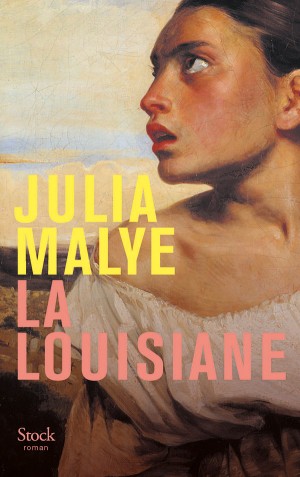 Personne ne leur a expliqué où elles seraient logées ce soir, dans combien de temps elles seraient fiancées. On ne dit pas tout aux femmes.
Personne ne leur a expliqué où elles seraient logées ce soir, dans combien de temps elles seraient fiancées. On ne dit pas tout aux femmes.
Paris, 1720. Marguerite Pancatelin, la Supérieure de la Salpêtrière, est mandatée pour sélectionner une centaine de femmes « volontaires » qui seront envoyées en Louisiane afin d’y épouser les colons français. Parmi elles, trois amies improbables : une orpheline de douze ans à la langue bien pendue, une jeune aristocrate désargentée et rejetée par sa famille ainsi qu’une femme condamnée pour avortement.
Comme leurs compagnes à bord de La Baleine , Charlotte, Pétronille et Geneviève ignorent tout de ce qui les attend au-delà des mers. Et n’ont pas leur mot à dire sur leur avenir.
Ces étrangères réunies par le destin devront braver l’adversité – maladie, guerre, patriarcat –, traverser une vie faite de chagrins d’amour, de naissances et de deuils, de cruauté et de plaisirs inattendus. Et d’une amitié forgée dans le feu.
Un roman d’une profondeur et d’une émotion saisissantes, qui nous transporte au cœur d’une terre impitoyable, aux côtés d’héroïnes animées d’une extraordinaire soif d’amour et de vie.
Julia Malye est née à Paris en 1994. Elle a publié son premier roman, La Fiancée de Tocqueville (éditions Balland), à l’âge de 15 ans. Diplômée de Sciences Po et de la Sorbonne en sciences sociales et lettres modernes, elle est également titulaire d’un Master of Fine Arts en creative writing de l’Université d’État de l’Oregon. Elle est traductrice de l’anglais pour Les Belles Lettres et, depuis 2018, elle enseigne l’écriture de fiction à Sciences Po. Son quatrième roman, La Louisiane, écrit parallèlement en français et en anglais, est en cours de traduction dans plus de vingt pays et sera adapté en série.
La Louisiane
par Julia Malye
Roman
Ed. Stock
Paru le: 03 Janvier 2024
Format: 138 x 216 mm
560 pages
Ean: 9782234094116
Prix: €23.90
• fleursdumal.nl magazine
More in: - Book Lovers, - Book News, - Bookstores, Archive M-N, The Ideal Woman
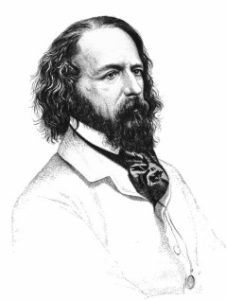
Late, Late, so Late
Late, late, so late! and dark the night and chill!
Late, late, so late! but we can enter still.
Too late, too late! ye cannot enter now.
No light had we: for that we do repent;
And learning this, the bridegroom will relent.
Too late, too late! ye cannot enter now.
No light: so late! and dark and chill the night!
O, let us in, that we may find the light!
Too late, too late: ye cannot enter now.
Have we not heard the bridegroom is so sweet?
O, let us in, tho’ late, to kiss his feet!
No, no, too late! ye cannot enter now.”
Alfred Lord Tennyson
(1809-1892)
Late, Late, so Late
• fleursdumal.nl magazine
More in: Archive S-T, Archive S-T, Tennyson, Alfred Lord
Ana Navas, geboren in 1984 in Quito, Ecuador, en opgegroeid in Venezuela, is een multidisciplinair kunstenaar.
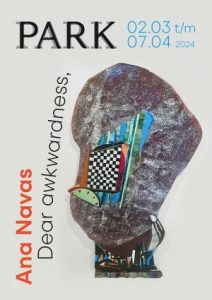
Haar werk richt zich op thema’s als assimilatie en toe-eigening, met de nadruk op de oorsprong van kunst- en designobjecten en de relatie tussen hoge en populaire cultuur.
‘Dear awkwardness’ is een persoonlijke brief waarin ze haar dank uitspreekt voor het concept van awkwardness. Ze erkent de negatieve invloed ervan op sociale situaties, maar omarmt ook de positieve invloed ervan en integreert het in het proces van het maken van haar kunst.
De bij PARK getoonde glaswerken zijn onlangs gemaakt bij MAKE in Eindhoven en laten deze ‘awkward mentaliteit’ zien.
DEAR AWKWARDNESS
tentoonstelling Ana Navas
02.03 – 07.04 2024
PARK TILBURG
PARK
Platform for Visual Arts
Wilhelminapark 53
5041 ED Tilburg
park(at)park013.nl
Facebook.com/Park013
https://www.instagram.com/park_tilburg/
Tijdens tentoonstellingen geopend:
vrijdag 13.00 – 17.00 uur
zaterdag 13.00 – 17.00 uur
zondag 13.00 – 17.00 uur
Toegang is gratis
PARK ligt op 10 minuten loopafstand van het Centraal Station Tilburg in de nabijheid van De Pont museum. Er is beperkt parkeergelegenheid voor de deur. Aan het Wilhelminapark geldt betaald parkeren van maandag t/m vrijdag tussen 9.00 en 15.00 uur.
• fleursdumal.nl magazine
More in: Archive M-N, Art & Literature News, Exhibition Archive, FDM Art Gallery, Park
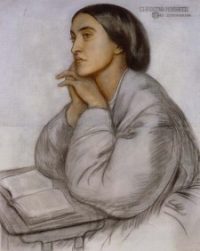
A Wintry Sonnet
A robin said: The Spring will never come,
And I shall never care to build again.
A Rosebush said: These frosts are wearisome,
My sap will never stir for sun or rain.
The half Moon said: These nights are fogged and slow,
I neither care to wax nor care to wane.
The Ocean said: I thirst from long ago,
Because earth’s rivers cannot fill the main.
When springtime came, red Robin built a nest,
And trilled a lover’s song in sheer delight.
Gray hoarfrost vanished, and the Rose with might
Clothed her in leaves and buds of crimson core.
The dim Moon brightened. Ocean sunned his crest,
Dimpled his blue, – yet thirsted evermore.
Christina Georgina Rossetti
(1830 – 1894)
A Wintry Sonnet
• fleursdumal.nl magazine
More in: 4SEASONS#Winter, Archive Q-R, Archive Q-R, Rossetti, Christina
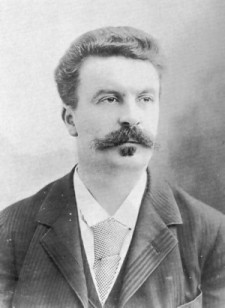
Les oies sauvages
Tout est muet, l’oiseau ne jette plus ses cris.
La morne plaine est blanche au loin sous le ciel gris.
Seuls, les grands corbeaux noirs, qui vont cherchant leurs proies,
Fouillent du bec la neige et tachent sa pâleur.
Voilà qu’à l’horizon s’élève une clameur ;
Elle approche, elle vient, c’est la tribu des oies.
Ainsi qu’un trait lancé, toutes, le cou tendu,
Allant toujours plus vite, en leur vol éperdu,
Passent, fouettant le vent de leur aile sifflante.
Le guide qui conduit ces pèlerins des airs
Delà les océans, les bois et les déserts,
Comme pour exciter leur allure trop lente,
De moment en moment jette son cri perçant.
Comme un double ruban la caravane ondoie,
Bruit étrangement, et par le ciel déploie
Son grand triangle ailé qui va s’élargissant.
Mais leurs frères captifs répandus dans la plaine,
Engourdis par le froid, cheminent gravement.
Un enfant en haillons en sifflant les promène,
Comme de lourds vaisseaux balancés lentement.
Ils entendent le cri de la tribu qui passe,
Ils érigent leur tête ; et regardant s’enfuir
Les libres voyageurs au travers de l’espace,
Les captifs tout à coup se lèvent pour partir.
Ils agitent en vain leurs ailes impuissantes,
Et, dressés sur leurs pieds, sentent confusément,
A cet appel errant se lever grandissantes
La liberté première au fond du coeur dormant,
La fièvre de l’espace et des tièdes rivages.
Dans les champs pleins de neige ils courent effarés,
Et jetant par le ciel des cris désespérés
Ils répondent longtemps à leurs frères sauvages.
Guy de Maupassant
(1850 – 1893)
Les oies sauvages
• fleursdumal.nl magazine
More in: 4SEASONS#Winter, Archive M-N, Archive M-N, Guy de Maupassant, Maupassant, Guy de, Maupassant, Guy de
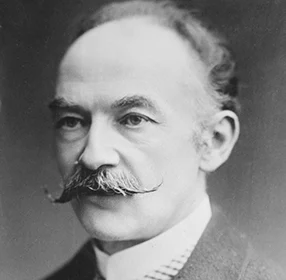
Snow in the Suburbs
Every branch big with it,
Bent every twig with it;
Every fork like a white web-foot;
Every street and pavement mute:
Some flakes have lost their way, and grope back upward when
Meeting those meandering down they turn and descend again.
The palings are glued together like a wall,
And there is no waft of wind with the fleecy fall.
A sparrow enters the tree,
Whereon immediately
A snow-lump thrice his own slight size
Descends on him and showers his head and eye
And overturns him,
And near inurns him,
And lights on a nether twig, when its brush
Starts off a volley of other lodging lumps with a rush.
The steps are a blanched slope,
Up which, with feeble hope,
A black cat comes, wide-eyed and thin;
And we take him in.
Thomas Hardy
(1840 – 1928)
Snow in the Suburbs
• fleursdumal.nl magazine
More in: # Classic Poetry Archive, 4SEASONS#Winter, Archive G-H, Archive G-H, Hardy, Thomas
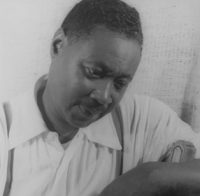
To Winter
Stay, season of calm love and soulful snows!
There is a subtle sweetness in the sun,
The ripples on the stream’s breast gaily run,
The wind more boisterously by me blows,
And each succeeding day now longer grows.
The birds a gladder music have begun,
The squirrel, full of mischief and of fun,
From maples’ topmost branch the brown twig throws.
I read these pregnant signs, know what they mean:
I know that thou art making ready to go.
Oh stay! I fled a land where fields are green
Always, and palms wave gently to and fro,
And winds are balmy, blue brooks ever sheen,
To ease my heart of its impassioned woe.
Claude McKay
(1889 – 1948)
To Winter
• fleursdumal.nl magazine
More in: #Modern Poetry Archive, 4SEASONS#Winter, Archive M-N, Archive M-N, Claude McKay

Les quatre saisons – L’hiver
C’est l’hiver. Le charbon de terre
Flambe en ma chambre solitaire.
La neige tombe sur les toits.
Blanche ! Oh, ses beaux seins blancs et froids!
Même sillage aux cheminées
Qu’en ses tresses disséminées.
Au bal, chacun jette, poli,
Les mots féroces de l’oubli,
L’eau qui chantait s’est prise en glace,
Amour, quel ennui te remplace!
Charles Cros
(1842 – 1888)
Les quatre saisons – L’hiver
• fleursdumal.nl magazine
More in: 4SEASONS#Winter, Archive C-D, Archive C-D, Cros, Charles
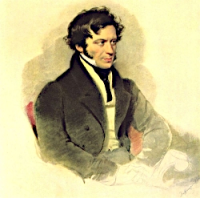
Sehnsucht nach Liebe
Alles liebet, alles scherzet
In der fröhlichen Natur;
Alles küsset, alles herzet
Auf den Höhn in Wald und Flur!
Läßt der holde Lenz sich nieder,
Sanft umschwärmt vom lauen West,
Senkt der Vogel sein Gefieder,
Bauet liebend sich ein Nest.
Und der Löwe flieht das Morden,
Das sonst höchste Lust ihm schafft;
Er verläßt der Brüder Horden,
Huldigt Amors Zauberkraft.
Und dir soll ich mich entziehen,
Die uns menschlich fühlen lehrt?
Liebe! ach, dich soll ich fliehen,
Die der Tiger selbst verehrt?
Ich allein nur soll dich meiden,
Holde Spenderin der Lust?
Ich soll wilde Tiere neiden
Um das Fühlen ihrer Brust?
Nein! dem schönsten aller Triebe
Sei mein fühlend Herz geweiht!
Schenke mir Themirens Liebe,
Amor, Gott der Zärtlichkeit!
Franz Seraphicus Grillparzer
(Wien 1791 – 1872)
Sehnsucht nach Liebe (Gedicht)
• fleursdumal.nl magazine
More in: # Classic Poetry Archive, Archive G-H, Archive G-H, Grillparzer, Franz
Thank you for reading Fleurs du Mal - magazine for art & literature